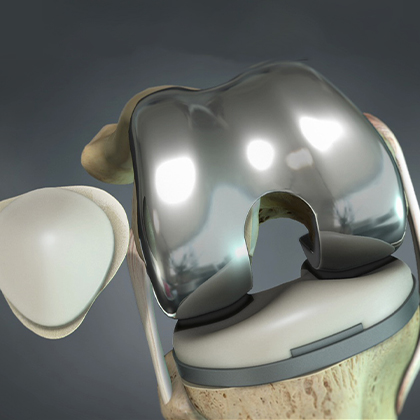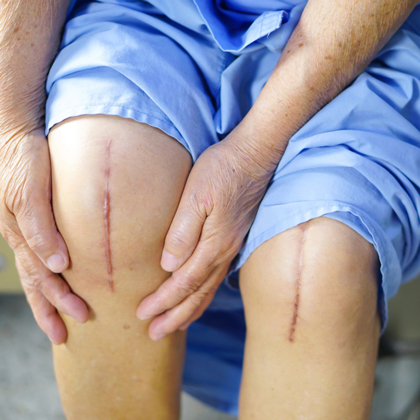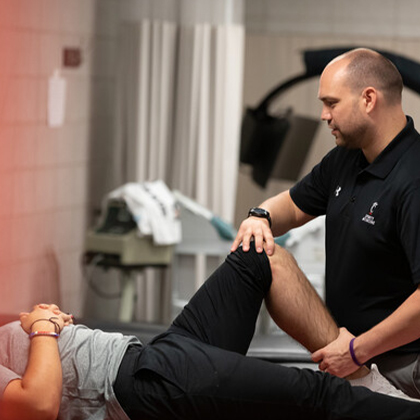
Total Hip Replacement
Total Hip Replacement also known as total hip arthroplasty, is one of the most effective & successful surgeries performed in orthopedics. This surgery has reliable & successful outcomes for patients with a degenerative hip to relieve their pain, mobility & overall quality of life.
Hip replacement surgery involves removal of parts of the hip joint that are causing problems and replacing them with metal, plastic or ceramic implants.
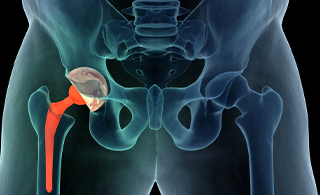
Hip replacement surgery is often recommended for patients with severe pain, inflammation & damage to the hip joint resulting from:
- Osteoarthritis
- Avascular necrosis
- Rheumatoid arthritis
- Hip Fracture
- Tumour in hip joint
If a patient is unable to perform his or her daily activities such as climbing stairs or getting dressed, the doctor may advice to go for a hip replacement surgery. However, hip replacement surgery is always a last resort when all other treatment options such as pain medications, physiotherapy, steroid injections do not help.
Have you been recommended a hip replacement surgery? Before you decide on whether or not you should get the surgery, here are some of the potential benefits of this procedure.
- High Success Rate
- Significant Pain Relief
- Enhanced mobility & function of the hip
- Long term solution for hip pain
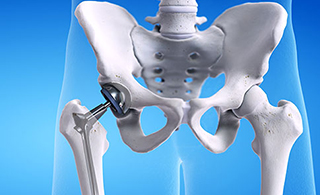
While the surgery has excellent outcomes, there are still some risks associated with it. Some of these include:
Blood clots
The patient may experience clots in leg veins post surgery. Blood thinning medications are used to lower this risk.
Infection
As with any surgery, there are chances of infection at the site of incision and also in the deeper tissue near the hip. Most infections are treated easily with antibiotics.
Fracture
In some cases, healthy portions of the hip joint may fracture. In most cases, the fractures are small & heal on their own. In others, they may need to be stabilised with wires, screw, metal plates or bone grafts.
Dislocation
It is important for the patient to be extra careful during the first few months as certain positions can cause the ball of the new joint to come out of its socket. This can lead to hip dislocation. This may be corrected with a brace. If it recurs, surgery may be required to stabilise it.
Change in leg length
While surgeons take measures to avoid this problem, in some patients after the surgery one leg ends up being longer or shorter than the other. This happens due to contracture of muscles around the hip. Progressive strengthening & stretching these muscles can help.
Nerve Damage
In rare cases, nerves in the site of the implant may be injured. This can lead to numbness, weakness or pain.
In general hip replacement prosthesis remain effective for 10 to 20 years. Some last even longer. Results depend on the type of implant & the age of the patient.
When choosing the right orthopedic surgeon for your hip replacement surgery, it is important to research the surgeon’s credentials, experience & reputation. The success rate for Hip replacement surgery at Elite Orthopedics is very high. Our patients have recovered well from the surgery are now leading long, healthy & happy lives. Consult the best hip replacement surgeons in Hyderabad at Elite Orthopedics.

+91 123456789
eliteOrthopedics@gmail.com
Yashoda Hospitals Hitec City




